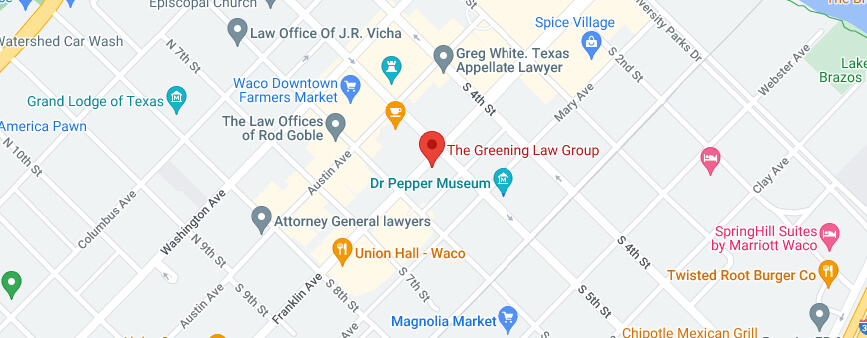What Are the Possible Penalty Groups For Your Texas Drug Charges?
Every state develops its own laws outlining the penalties for possessing or distributing controlled substances, which are in accordance with the federal drug schedules. The 1970 Controlled Substances Act established a national system for dividing the various types of potentially harmful drugs into five categories. The classifications are based on the substance’s addictiveness, the likelihood of abuse, and the possibility of medical usage.
The Texas Health and Safety Code, Chapter 481, utilizes the framework of the federal drug schedules to create four main penalty groups. While there are many similarities to the federal drug schedules, the state’s statutes also combine or move the categorizations of several substances to make a unique system. Understanding these penalty groups is vital if you’re facing drug charges in Texas because the judge will use them as a sentencing guide if you are convicted. Even first-time drug charges can lead to years in prison, depending on the drug’s penalty group and other circumstances in the case. A knowledgeable drug crimes defense attorney can fully explain the consequences you are facing and create a strategy to help you reach the best possible outcome in your case.
Penalty Group 1
This grouping contains the most heavily controlled substances. These drugs are highly addictive, and either have no medical use or their prescriptions are closely monitored through tracking databases. Substances in this group include:
- Methamphetamine
- Prescription opiates, such as Oxycodone
- Heroin
- Cocaine
- Ketamine
- Morphine
This penalty group has the most stringent sentencing guidelines as well. Even possessing less than a gram of any of these substances is a state jail felony, which could result in 180 days to two years in state jail and a fine of up to $10,000. Penalties increase as the quantity of the substance in your possession goes up. The maximum penalty is ten to 99 years in federal prison and a fine of up to $100,000 if you possess 400 grams or more.
Penalty Groups 1A and 1B
A subsection of Penalty Group 1, Penalty Group 1A includes LSD and its components, such as salts and isomers of LSD. These substances are grouped separately because they are measured in units rather than grams for sentencing purposes. A unit is usually one square of LSD. The penalty for possessing less than 20 units is 180 days to two years in jail and a fine of up to $10,000. At the other end of the spectrum, if you possess over 4000 units, you could face 15 to 99 years in prison and up to a $250,000 fine.
Penalty Group 1B was added through an amendment by the Texas legislature in 2021 and includes fentanyl and its derivatives. This grouping was meant to add stiffer penalties for the possession, manufacture, and distribution of fentanyl compared to drugs in Penalty Group 1.
Penalty Group 2
The substances in this category are primarily hallucinogens, including:
- Ecstasy
- Mescaline
- PCP
- Psilocybin (mushrooms)
- Adderall
The possession of any amount of these drugs is a felony. The minimum consequence is up to a $10,000 fine and 180 days to two years in state jail for having less than a gram. For large amounts, the maximum penalty is five to 99 years in prison and a hefty fine of up to $50,000.
Penalty Group 2A
This grouping consists of synthetic cannabinoids, such as Spice and K2. Possession of less than a gram of these substances is a Class B misdemeanor punishable by up to 180 days in county jail and a maximum fine of $2000. The maximum penalty in this group is up to 99 years in prison and a $50,000 fine.
Penalty Group 3
While many drugs in this penalty group may be legitimately obtained through a prescription, they also have a high potential for abuse, so they are considered controlled substances. Some examples of the drugs included in Penalty Group 3 are:
- Benzodiazepines, including Ativan, Xanax, and Klonopin
- Anabolic steroids
- Ritalin and other ADHD medications
- Peyote
Possessing these substances without a valid prescription can lead to severe penalties. Possession of less than 28 grams is punishable by a maximum $4000 fine and up to a year in jail. A quantity over 400 grams can result in a $50,000 fine and a five to 99-year prison sentence.
Penalty Group 4
Any opiates and opioids not covered by Penalty Group 1 and other prescription substances that could be abused are included in this group. It is a Class B misdemeanor to have less than 28 grams of these controlled substances in your possession, and you could face up to 180 days in jail and a $2000 fine if convicted. The severity of the potential punishment increases based on the amount possessed, with a maximum of five to 99 years in prison and a $50,000 fine for quantities exceeding 400 grams.
How is Marijuana Categorized?
Although some states have recently legalized recreational and medicinal marijuana use, it is still illegal in Texas. However, marijuana is not listed in the four drug penalty groups. Instead, the state’s Health and Safety Code has a separate chapter addressing marijuana possession and penalties.
Individuals with less than two ounces can be charged with a Class B misdemeanor, sentenced to up to 180 days in jail, and fined as much as $2000. Possessing large quantities over 2000 pounds is a felony with a sentence of five to 99 years in prison, with the possibility of a maximum $100,000 fine.
How Can a Drug Crimes Defense Lawyer Assist You?
Drug charges in Texas can be complex and confusing. Within each penalty group, there are delineations in the sentencing guidelines based on the quantity of drugs possessed. However, other factors, such as accusations of manufacturing or delivering the substance, selling or providing drugs to an individual under 18, or possessing drugs in or near a school, can lead to increased charges.
You could face significant jail or prison time for drug charges, even with a clean criminal record. An experienced Texas criminal defense lawyer from The Greening Law Group can provide the aggressive, skilled representation you need to fight back against these potentially life-changing accusations. Contact our College Station office at 979-779-2000 to schedule a case evaluation today!













